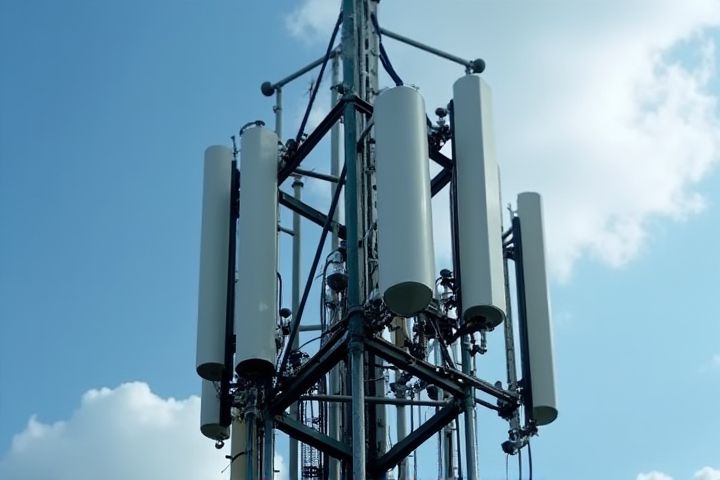
Nigeria has witnessed significant telecom innovations, transforming its communication landscape. The introduction of 4G LTE technology has enhanced mobile internet speeds, allowing for seamless video streaming and online business transactions. Mobile money services, such as Paga and OPay, have revolutionized financial inclusivity, enabling millions to access banking services without traditional accounts. The proliferation of smartphones has propelled social media engagement, with platforms like WhatsApp and Facebook becoming essential for personal and business communication. As a result, you can leverage these advancements to connect with clients, access vital information, and foster relationships across diverse sectors.
Mobile Money Services
Telecom innovations in Nigeria are revolutionizing financial transactions with the rapid adoption of mobile money services. Platforms such as M-Pesa and Paga enable users to perform secure, instant transfers, bill payments, and access savings accounts directly from their mobile devices. This surge in mobile finance is enhancing financial inclusion, empowering millions of Nigerians who previously lacked access to traditional banking. As the telecom infrastructure continues to improve, you can expect an even more significant impact on economic growth and consumer empowerment through these digital financial solutions.
Increased 4G Coverage
Telecom innovations in Nigeria emphasize the expansion of 4G coverage, aiming to enhance internet access across urban and rural areas. Major telecommunications companies like MTN, Airtel, and Globacom are investing significantly in infrastructure to boost network quality and speed. With over 70 million 4G subscribers, this initiative is crucial for supporting digital economy growth and improving online services such as e-commerce and fintech. Enhanced connectivity not only improves communication but also fosters educational opportunities and drives innovation in various sectors.
Introduction of 5G
Telecom innovations in Nigeria are rapidly advancing with the introduction of 5G technology, which promises enhanced internet speeds and improved connectivity. Major telecommunications companies, such as MTN and Airtel, are investing in infrastructure to support this new generation of mobile broadband, providing opportunities for businesses and consumers alike. The deployment of 5G is expected to revolutionize various sectors, including healthcare, education, and e-commerce, by facilitating applications like telemedicine and smart city initiatives. As Nigeria embraces this technological shift, you may experience a significant transformation in daily communications and access to information.
Regulatory Reforms
Telecom innovations in Nigeria are heavily influenced by regulatory reforms aimed at fostering a competitive market environment. The Nigerian Communications Commission (NCC) has implemented policies to enhance infrastructure development, promote fair competition, and safeguard consumer rights. Key initiatives include the deployment of universal service funds to expand network access in rural areas and the introduction of quality of service standards to ensure reliable connectivity. These reforms not only drive technological advancements but also attract foreign investments, positioning Nigeria as a leading hub for telecommunications in Africa.
Indigenous Tech Startups
Telecom innovations in Nigeria have increasingly centered around indigenous tech startups, fostering a robust ecosystem that drives local economic growth. These startups leverage advancements in mobile technology, cloud computing, and digital payments to enhance connectivity and service delivery across urban and rural areas. Notable examples include fintech solutions that cater to unbanked populations and mobile health applications that improve access to healthcare services. By prioritizing homegrown talent and solutions, Nigeria is positioning itself as a leader in the African tech landscape, paving the way for sustainable development and improved quality of life.
Blockchain Adoption
Telecom innovations in Nigeria are increasingly embracing blockchain technology to enhance security and transparency in transactions. This adoption facilitates real-time data sharing and improves identity verification processes, significantly reducing fraud in the telecommunications sector. By leveraging decentralized systems, Nigerian telecom providers can streamline operations, leading to cost savings and improved customer experiences. You can expect future advancements to further integrate blockchain, revolutionizing payment methods and increasing trust among users.
Digital Identity Systems
Telecom innovations in Nigeria are revolutionizing digital identity systems, enhancing both security and accessibility for citizens. The National Identity Management Commission (NIMC) has partnered with telecom operators to integrate biometric data into mobile networks, streamlining identity verification processes. As a result, users can easily authenticate themselves for various services, from banking to healthcare, using their mobile devices. This technological advancement not only promotes convenience but also aims to reduce fraud and improve service delivery across sectors.
Fiber Optic Expansion
Telecom innovations in Nigeria increasingly emphasize fiber optic expansion to enhance connectivity and internet speed across the nation. Major telecommunications companies are investing in extensive fiber networks, significantly improving rural and urban access to high-speed internet services. This expansion supports a burgeoning digital economy, enabling opportunities in e-commerce, telemedicine, and education. As consumers demand more reliable communication services, the shift to fiber optics positions Nigeria as a leader in Sub-Saharan Africa's telecommunications landscape.
E-governance Platforms
Telecom innovations in Nigeria are revolutionizing e-governance platforms, enhancing public service delivery and citizen engagement. Mobile applications and digital infrastructure are increasingly utilized to streamline communication between government agencies and citizens, facilitating access to information and services. The integration of mobile payment systems allows for efficient tax collection and fee payments, promoting transparency and accountability in governance. As a result, you can expect improved civic participation and a more responsive government that meets the needs of its citizens.
Internet of Things (IoT) Integration
Telecom innovations in Nigeria are significantly driven by the integration of Internet of Things (IoT) technologies, enhancing connectivity and automation across various sectors. Major telecom providers are investing in IoT platforms to support smart agriculture, healthcare, and smart cities, thus improving operational efficiencies and service delivery. You can see the emergence of real-time data analytics as a crucial component, enabling businesses to make informed decisions based on IoT insights. With the increasing penetration of mobile devices and reliable internet access, Nigeria is poised to become a hub for IoT innovation in Africa.
